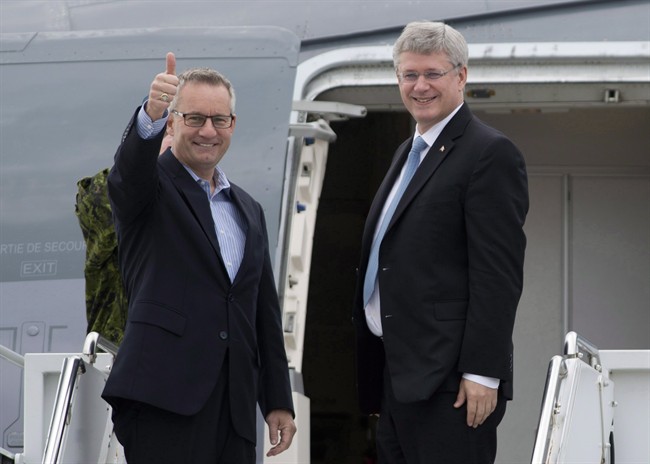OTTAWA – The Harper government says it wants Canadian diplomats in foreign countries to re-channel their energies and resources into advancing the country’s commercial interests.

Trade Minister Ed Fast says he wants to do more to break into fast-growing emerging markets that many — including the Bank of Canada — have identified as key to the country’s future prosperity.
Fast, who played a major role in the Canada-European Union trade negotiations, outlined the policy Wednesday in a speech to the Economic Club, describing it as a sea change in the way diplomatic resources are deployed around the world.
“In a fiercely competitive global economy, Canada cannot be complacent,” he said in prepared remarks. “We must be more aggressive and effective than the intense competition we face as we advance Canada’s commercial interests in key global markets.
“In short, this new plan will play to our strengths and ensure that all the government of Canada’s diplomatic assets are harnessed to support the pursuit of commercial success by Canadian companies and investors.”
Fast said the change would entrench the concept of commercial success for Canadian firms and investors as one of the core objectives for the foreign service.
The policy has clear objectives: within five years, Fast said, he wants to come close to doubling the 11,000 or so small and medium-sized Canadian firms that currently operate in emerging markets such as China, India and Brazil.
If the strategy is successful, it would create upwards of 40,000 new export-oriented jobs, he added.
- Life in the forest: How Stanley Park’s longest resident survived a changing landscape
- ‘Love at first sight’: Snow leopard at Toronto Zoo pregnant for 1st time
- Carbon rebate labelling in bank deposits fuelling confusion, minister says
- Buzz kill? Gen Z less interested in coffee than older Canadians, survey shows
But it remains unclear how it would work — whether Ottawa would increase its diplomatic footprint in designated countries or boost spending on the effort.
The government has in the past signalled its intent to advance commerce as a key function of the diplomatic corps. It has already melded the trade and foreign affairs functions under a single department and announced plans to fold in the Canadian International Development Agency.
The approach builds on Ottawa’s Global Commerce Strategy unveiled five years ago and comes after a year-long consultation with provinces and businesses on how Canada should harness its resources to make a bigger dent in the parts of the world that are growing the fastest, such as Asia and parts of Latin America.
That was the objective when Ottawa announced its commerce strategy in 2007, and part of the approach entailed aggressively seeking new free-trade agreements where possible.
Ironically, however, Ottawa’s only successful major trade negotiation since has been with Europe, a developed common market with painfully slow growth.
Meanwhile, analysts have warned that Canada is falling behind, rather than gaining, in terms of market share in many emerging regions.
Along with refocusing the foreign diplomatic assets which the government calls “economic diplomacy,” Fast said the government will try to identify specific nations and sectors with the greatest potential for Canadian firms in terms of export and investment opportunities.



Comments